Sleep Aid Selector
Answer the following questions to find the best sleep aid for your situation:
Recommended Sleep Aid:
When nightly tossing and turning becomes a habit, many turn to Melatonin is a hormone naturally produced by the pineal gland that signals your body it’s time to sleep. Over‑the‑counter melatonin pills mimic that signal, making them a go‑to for occasional insomnia. But melatonin isn’t the only option on the market, and the right choice depends on how quickly you need relief, any underlying health issues, and personal tolerance.
Quick Take
- Melatonin works best for shift‑workers and jet lag because it resets your internal clock.
- Valerian root offers a calming effect without a hormonal cue, good for stress‑related sleeplessness.
- Magnesium helps muscles relax and can improve sleep quality over weeks of consistent use.
- 5‑HTP boosts serotonin, aiding both mood and sleep onset.
- CBD provides anxiety relief and may shorten the time it takes to fall asleep.
How Melatonin Stacks Up
Melatonin’s appeal lies in its simplicity: a single low‑dose pill, usually 0.5‑5mg, taken 30‑60 minutes before bed. Because it mimics a natural hormone, side effects are generally mild-headaches or occasional vivid dreams. The downside? It mainly helps synchronize your circadian rhythm; it doesn’t calm an overactive mind, so people with anxiety‑driven insomnia may still struggle.
Key Alternatives Explained
Below are the most common non‑prescription alternatives, each with a brief definition and core attributes.
Valerian root is a perennial herb whose root extract has been used for centuries as a calming tea. It interacts with GABA receptors, the same pathway targeted by many prescription sleep drugs, but without the same risk of dependence.
Magnesium is an essential mineral that supports over 300 enzymatic reactions, including muscle relaxation and nerve signaling. Low magnesium levels are linked to restless sleep.
5‑HTP (5‑hydroxytryptophan) is a direct precursor to serotonin, the neurotransmitter that regulates mood and sleep cycles.
L‑Theanine is an amino acid found in tea leaves that promotes alpha‑brain wave activity, fostering a relaxed yet alert state conducive to falling asleep.
CBD (cannabidiol) is a non‑psychoactive compound from hemp that interacts with the endocannabinoid system, easing anxiety and pain-two common sleep disruptors.
Diphenhydramine is an antihistamine found in many over‑the‑counter sleep aids (e.g., Benadryl). It induces drowsiness but can cause next‑day grogginess.
Zolpidem is a prescription hypnotic (brand name Ambien) that works quickly to promote sleep but carries risk of dependence and complex sleep‑related behaviors.
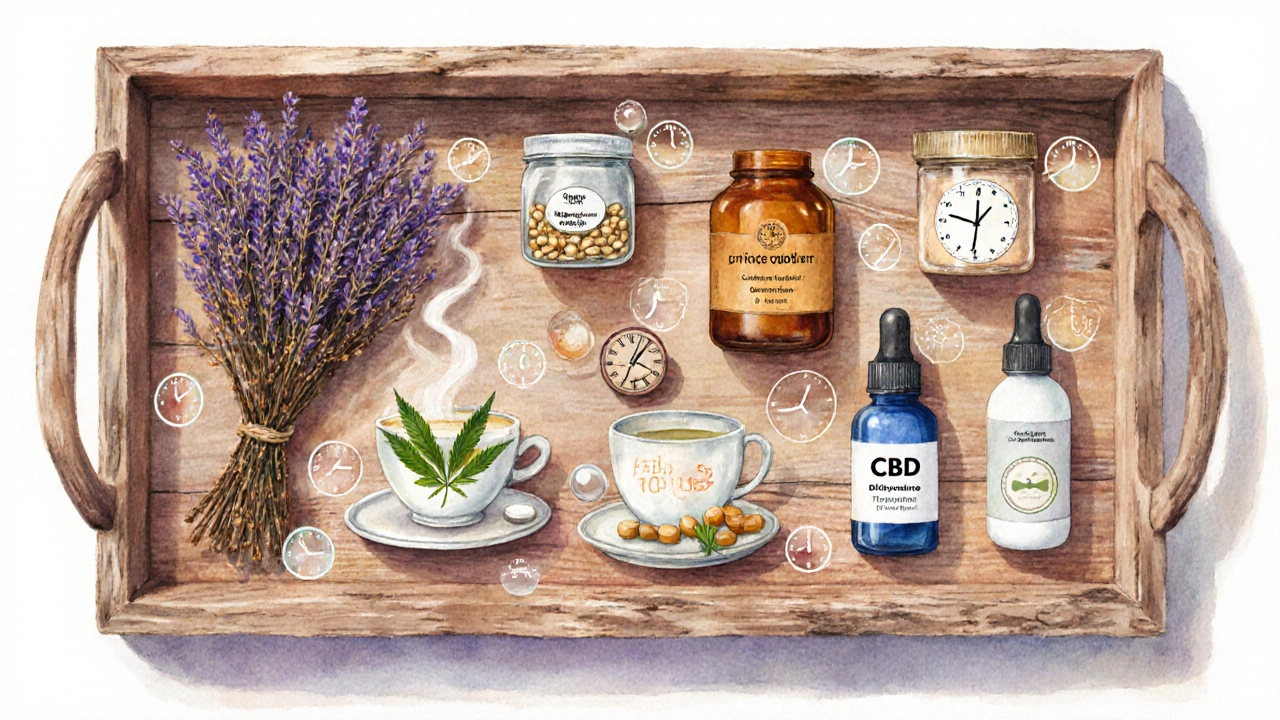
Side‑by‑Side Comparison Table
| Ingredient | Typical Dose | Onset (minutes) | Duration (hours) | Pros | Cons |
|---|---|---|---|---|---|
| Melatonin | 0.5‑5mg | 30‑60 | 4‑8 | Resets circadian rhythm; low habit risk | May not calm racing thoughts; occasional vivid dreams |
| Valerian root | 400‑900mg extract | 45‑90 | 6‑8 | GABA‑like effect; non‑hormonal | Smells earthy; possible morning fog |
| Magnesium (glycinate) | 200‑400mg | 60‑90 | 8‑10 | Improves muscle relaxation; supports overall health | High doses cause GI upset |
| 5‑HTP | 50‑100mg | 30‑45 | 5‑7 | Boosts serotonin; may aid mood | Risk of serotonin syndrome with SSRIs |
| L‑Theanine | 100‑200mg | 15‑30 | 6‑8 | Promotes relaxed focus; no sedation | May be too mild for severe insomnia |
| CBD oil | 10‑25mg | 30‑45 | 6‑9 | Reduces anxiety & pain; non‑addictive | Regulation varies; possible dry mouth |
| Diphenhydramine | 25‑50mg | 15‑30 | 4‑6 | Strong drowsiness; cheap | Next‑day grogginess; anticholinergic effects |
| Zolpidem | 5‑10mg | 15‑30 | 6‑8 | Fast, reliable sleep induction | Potential dependence; complex sleep behaviors |
Choosing the Right Sleep Aid for You
Think of sleep aids as tools in a toolbox. Your choice should match the specific problem you’re trying to fix.
- Clock‑resetting issues (jet lag, shift work): Melatonin shines because it tells your brain “nighttime” is coming.
- Stress‑driven insomnia: Valerian or CBD can calm the nervous system without altering hormone levels.
- Magnesium deficiency (muscle cramps, restless legs): A magnesium supplement tackles the root cause and improves overall sleep quality.
- Low serotonin (mood swings, early‑morning awakening): 5‑HTP addresses both mood and sleep.
- Desire for a non‑sedating relaxant: L‑Theanine lets you unwind while staying mentally clear, good for creative professionals who need to fall asleep after evening work.
- Quick, strong drowsiness: Diphenhydramine works but pay the price in morning sluggishness.
- Prescription‑level need: If insomnia is chronic and severely impacts daily life, a doctor‑prescribed hypnotic like Zolpidem may be warranted.
Safety Tips & Common Pitfalls
- Start low, go slow. A 0.5mg melatonin dose can be enough; higher doses don’t always mean better sleep.
- Combine with good sleep hygiene-dark room, limited screen time, consistent bedtime.
- Watch for interactions. For example, 5‑HTP should not be mixed with SSRIs without medical advice.
- Avoid alcohol with any sedative; it amplifies drowsiness and disrupts sleep architecture.
- Be wary of ““all‑natural”” claims. Even herbal extracts can cause side effects or interact with meds.
Frequently Asked Questions
Can I take melatonin every night?
Occasional use for jet lag or temporary schedule changes is fine. Daily long‑term use should be discussed with a GP, especially if you have hormonal conditions or are pregnant.
Is valerian safe for children?
Most pediatric guidelines advise against regular valerian use under 12years old. If a child has sleep trouble, consult a paediatrician first.
How long does it take for magnesium to improve sleep?
Magnesium works gradually; most people notice better sleep quality after 2‑3 weeks of consistent supplementation.
Can CBD make me high?
No. Full‑spectrum CBD contains trace THC (under 0.2% in the UK), far below the level that produces psychoactive effects.
Should I mix melatonin with a herbal supplement?
Mixing is generally safe, but stacking two sedatives can increase drowsiness. Try one at a time to see which works best before combining.
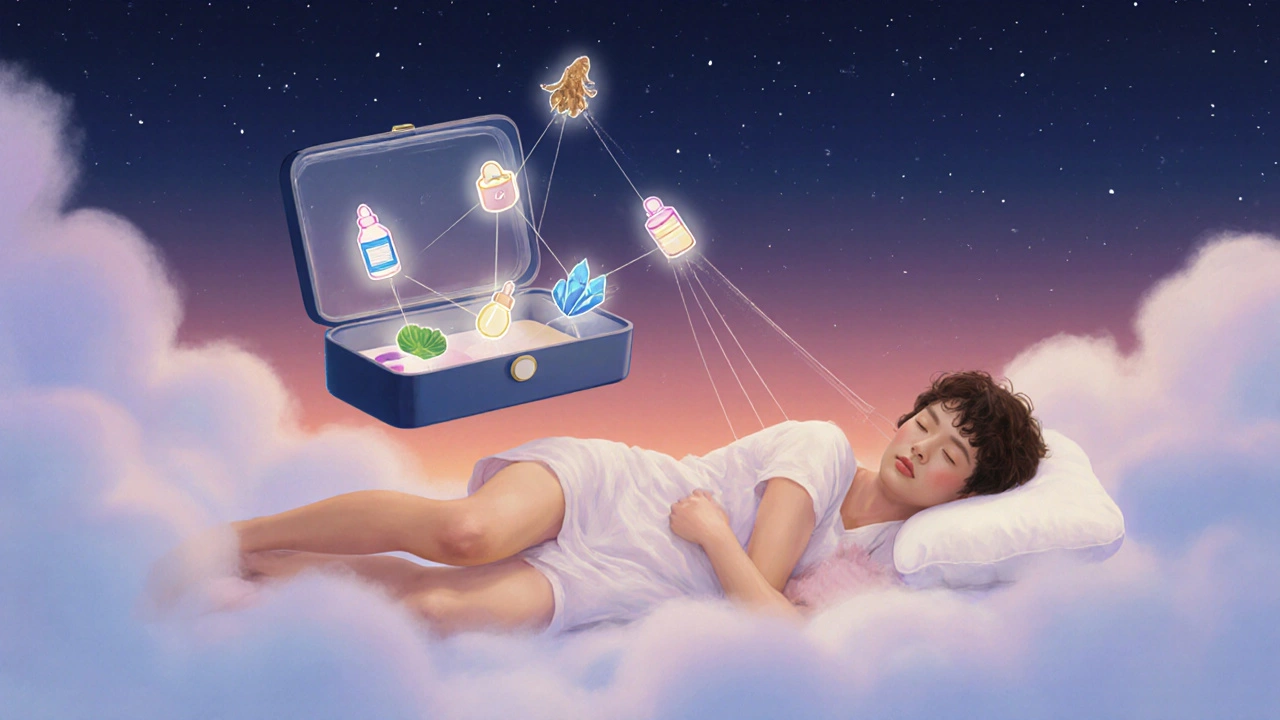
Next Steps
1. Identify the main reason you’re struggling to sleep - clock‑shift, stress, deficiency, or medication side effect.
2. Pick the first candidate from the table that matches that reason. Start with the lowest suggested dose.
3. Track your sleep for a week (time to fall asleep, night‑time awakenings, morning alertness). Adjust dose or switch to another option if you don’t see improvement.
4. If none of the over‑the‑counter options help after a month, schedule a talk with your GP - they may explore prescription routes or underlying health issues.
Sleep is a cornerstone of wellbeing, and the right aid can turn sleepless nights into restful recovery. Whether you stick with melatonin or experiment with a natural alternative, the key is consistency, monitoring, and pairing any supplement with solid sleep hygiene.

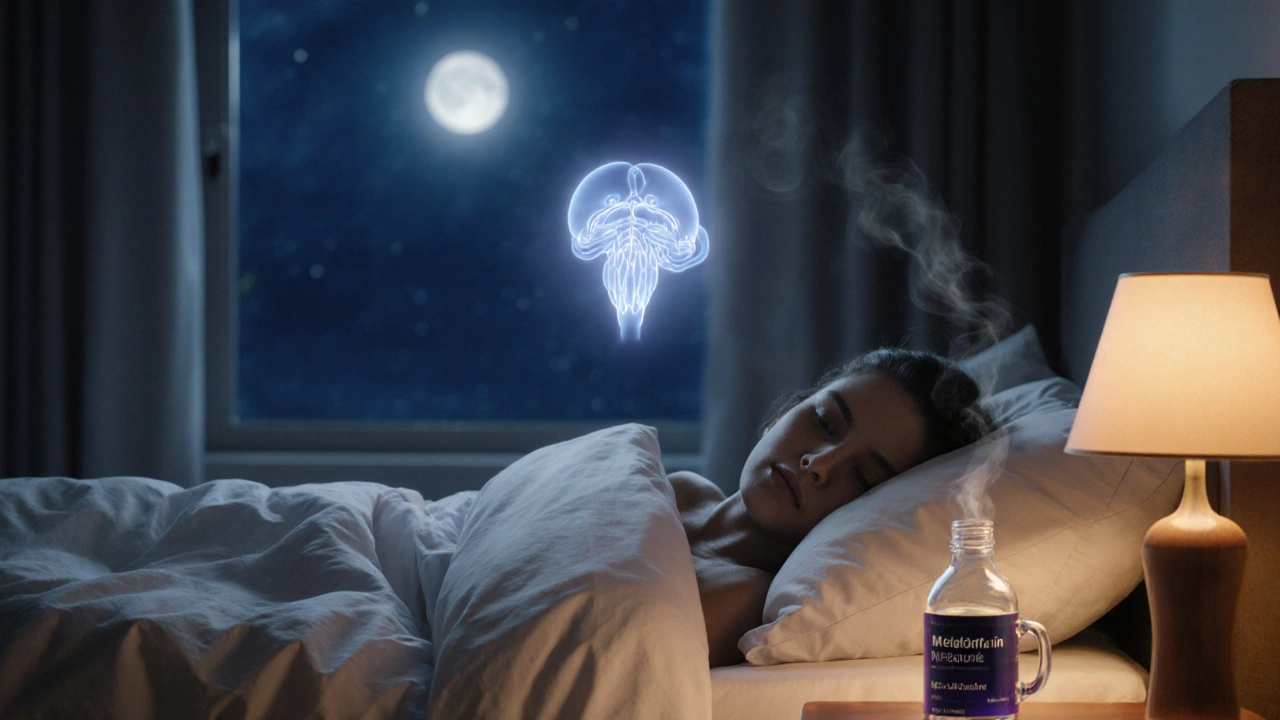
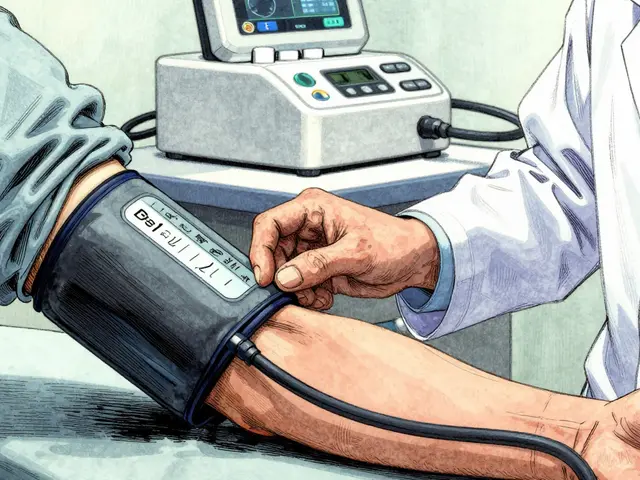
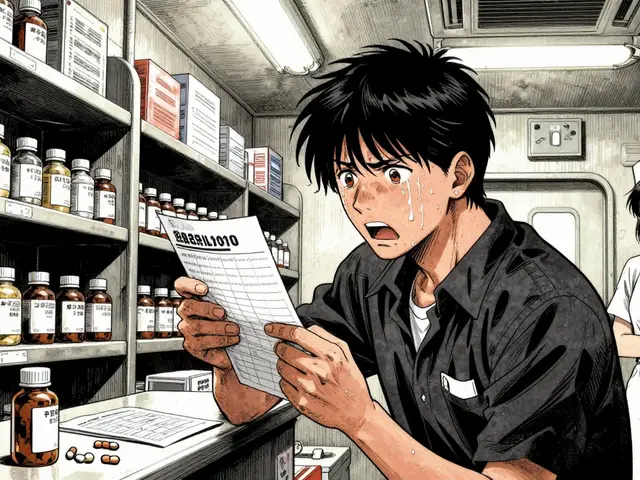
Jason Divinity
September 30, 2025 AT 22:10Chronobiology dictates that melatonin's primary utility lies in phase‑advancement for desynchronised circadian rhythms, especially in jet‑lag scenarios. By aligning the suprachiasmatic nucleus with the external light‑dark cycle, one can reduce sleep latency without invoking sedative GABAergic pathways.
andrew parsons
September 30, 2025 AT 23:33Indeed, the pharmacodynamics of valerian root, rich in valerenic acids, modulate GABA receptors, offering a gentle soporific effect; however, tolerability varies, and some users report a distinctive earthy after‑taste, which, while harmless, can be off‑putting 😊. Moreover, dosage titration remains crucial, starting low and escalating cautiously, lest one experience residual morning fog.
Sarah Arnold
October 1, 2025 AT 00:56If you suspect a magnesium deficiency, try magnesium glycinate before bed; it’s gentle on the stomach and supports muscle relaxation 😊. Consistency over a few weeks typically yields noticeable improvements in sleep continuity.
Rajat Sangroy
October 1, 2025 AT 02:20Listen, if stress is keeping you up, skip the caffeine and grab a valerian capsule – it’ll calm your nervous system faster than a bedtime podcast!
dany prayogo
October 1, 2025 AT 03:43Ah, the pantheon of sleep‑aid worshippers never ceases to amuse; one by one they parade their “miracle” powders, each boasting a headline benefit as if the universe were a marketplace for quick fixes. First, we have melatonin, the hormonal herald that promises to reset your internal clock with the same ease that a watchmaker rewinds a broken timepiece – only to discover that without proper sleep hygiene, the clock simply ticks on, oblivious to the supplement’s grandiose claims. Then comes valerian root, the botanical brooding philosopher, claiming to soothe the nervous system while simultaneously sprinkling a faint, earthy after‑taste that some users describe as “pleasantly rustic” and others as “a reminder that nature can be a bit too rustic for refined palates.” Magnesium follows, championed as the mineral of muscle relaxation, yet you must endure a potential gastrointestinal rebellion if you overdo the dose – a paradox that would make any stoic philosopher cringe. Let us not forget 5‑HTP, the serotonin‑synthesizing savior, which boldly promises mood elevation and smoother sleep, but only if you’re not already tangled in a regimen of SSRIs, lest you flirt with the specter of serotonin syndrome. L‑theanine, the tea‑leaf virtuoso, delicately nudges alpha‑brain waves without ushering you into full‑blown drowsiness, making it the perfect companion for those who wish to remain alert yet tranquil – a subtle art that many will overlook in favor of louder, more dramatic solutions. CBD, the non‑psychoactive cannabinoid, strides onto the stage touting anxiety reduction, though its legal status varies like a fickle tide, and the market is flooded with products whose purity is as questionable as a politician’s promise. Diphenhydramine, the antihistamine that moonlights as a sleep inducer, delivers swift drowsiness but at the cost of a foggy morning that feels like wading through molasses; a price many are unwilling to pay when productivity beckons. Finally, there is Zolpidem, the prescription‑only heavyweight champion, offering rapid, dependable sleep but carrying the ominous shadows of dependence and bizarre nocturnal behaviors. Each of these contenders delivers a slice of the sleep‑aid puzzle, yet none can replace the foundational pillars of consistent bedtime routines, dim lighting, and the noble art of winding down without a screen’s blue glare. In summary, the true wisdom lies not in hoarding a cabinet of pills, but in mastering the rhythm of one’s own circadian orchestra; let the supplements be mere instruments, not the conductors.
Wilda Prima Putri
October 1, 2025 AT 05:06Because melatonin isn’t a miracle cure, it’s just another supplement.
Edd Dan
October 1, 2025 AT 06:30i think trying a combo of l‑theanine and low dose melatonin could work nice, just remember to keep a sleep diary.
Jaime Torres
October 1, 2025 AT 07:53Totally overhyped.
Wayne Adler
October 1, 2025 AT 09:16Sleep is the nightly rebellion against the tyranny of wakefulness; denying it with pills is an illusion, yet judicious use of melatonin can be a strategic surrender.
Shane Hall
October 1, 2025 AT 10:40Picture this: the clock strikes midnight, the moonlight streams through the window, and you-armed with a modest 1 mg of melatonin-glide into a velvet‑soft slumber, the world fading like a curtain behind you.
Chelsea Kerr
October 1, 2025 AT 12:03💤 5‑HTP can be a double‑edged sword-boosting serotonin for mood and sleep, but pairing it with SSRIs? Danger zone! ⚠️
Tom Becker
October 1, 2025 AT 13:26They dont want u to know that the big pharma guys push diphenhydramine to keep u groggy all day-its all a control game.
Laura Sanders
October 1, 2025 AT 14:50One must appreciate that the nuanced pharmacokinetic profile of L‑theanine distinguishes it from traditional sedatives; its ability to promote alpha wave activity without inducing somnolence is a testament to its superior neurochemical selectivity.
Jai Patel
October 1, 2025 AT 16:13Yo, folks! If you’re chasing that rapid‑fire drowsiness, diphenhydramine is your ticket-just brace for the post‑sleep brain‑crash, mate!
Zara @WSLab
October 1, 2025 AT 17:36Great rundown! 🌟 Remember, pairing any supplement with proper sleep hygiene-dark room, no screens-magnifies the benefits.
Randy Pierson
October 1, 2025 AT 19:00Note the dosage ranges: melatonin 0.5‑5 mg, magnesium 200‑400 mg, L‑theanine 100‑200 mg; stay within these limits for safety.
Bruce T
October 1, 2025 AT 20:23Honestly, if you’re popping pills every night, you’re cheating yourself; try fixing your routine first.
Darla Sudheer
October 1, 2025 AT 21:46Sleep hygiene matters more than any supplement.
Elizabeth González
October 1, 2025 AT 23:10In the grand schema of human physiology, sleep constitutes a restorative epoch; pharmacological aids should be employed only as adjuncts to the innate circadian orchestration.